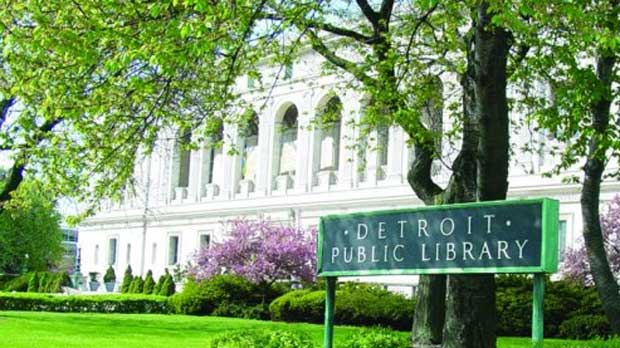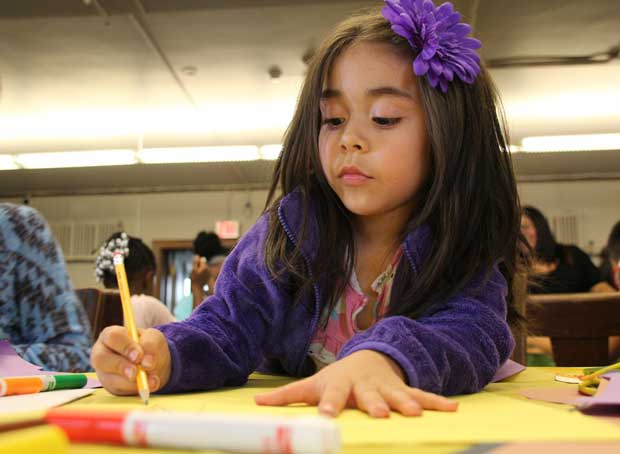
By Alexandra Fradelizio and Priscilla Rodriguez | m/Oppenheim Media Writers.
The Detroit Public Library has been around since before cars were invented. In fact, the library was right there inspiring the great Henry Ford himself and other renowned innovators of the 20th century, such as Thomas Edison.

“This library indirectly, or maybe directly, contributed to ‘lighting up the world’ and then putting it on a roll,” says Jo Anne Mondowney, Executive Director of the Detroit Public Library system, who discussed the institution’s rich impact on the development of the city and the rest of the U.S. over the years.
In 1865, Detroit’s public library system began as one room filled with a collection of 5,000 books, which quickly grew to more than 70,000 books within two decades. The system also expanded to new sites, opening new branches all over the region.
Today, the city’s library system spans across 22 different sites, all of which are homes to the biggest automotive history collection in the world. The library system also boasts an extensive African American music and performing arts collection, among so many others.
But beyond this impressive collection, Mondowney says that the Detroit Public Library also serves as a homebase for community development through its various cultural and educational programs. These include skills training opportunities, such as literacy and GED courses for adults, assistance with resume building and organization for teens, and even early development programs for toddlers that include music and exercise courses.
All of these programs have developed to meet the needs of the community over the years, and Mondowney explains that this is one of the biggest reasons why the library has had such an important impact on the community.
Through the city’s ups and downs, the Detroit Public Library has been flexible and quick to respond to its community’s expanding needs, including through the era of technology, when accessing and learning to navigate a computer became crucial.

Mondowney says that a few years ago, when Detroit was making a “visible comeback” from bankruptcy in 2015, the country looked to the public library system to ask what they were doing to help support the city’s comeback.
“Our reply was that we never left the city,” she said.
“We’ve been one of the places that have driven access to education and recreation and other elements that support the literary and learning needs of the people.”
Mondowney admits that the city’s declaration of bankruptcy in 2013 was perhaps one of the toughest challenges the region, including the library itself, had faced. Detroit become the biggest city to ever declare bankruptcy in American history, placing a strain on the library system, which lost funding and was forced to close several of its branches. Additionally, the library no longer admitted visitors on Sundays, which Mondowney says impacted community members as the Detroit Public Library was one of the first in the country to open on Sundays.
But last year, Mondowney explains, the library made a comeback.
“For the first time in 36 years, we were open again on Sunday,” she says.

In the face of adversity, the library indeed has been a reflection of the city’s own resilience over the years, and Mondowney says that this shared fortitude will continue to inspire the community’s future endeavours.
Mondowney has been the Executive Director of the Detroit Public Library since 2009 and says that the next major step for the system will be the creation of a new library.
“We are hoping that we can ride the wind of progress and build a new library from the ground up, and we want to stay viable in this environment to aid how people are accessing information.”
Learn more about the Detroit Public Library or Donate.
